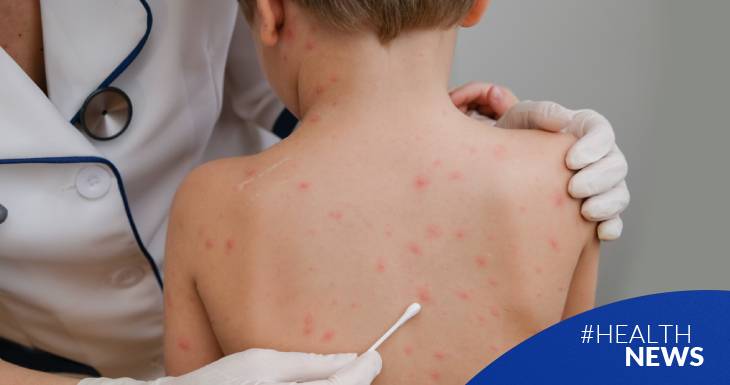The latest global data indicate 306,291 cases reported to the WHO (World Health Organization) in 2023, compared to 171,156 during 2022, representing an increase of 79%.
These data raise concern among public health authorities and the global medical community.
The reasons behind this increase are diverse, but include factors such as the influence of anti-vaccine movements, misinformation about vaccines and the interruption of immunization programs due to conflicts or global health crises.
Added to this, we tend to think that measles is a harmless and practically eradicated infection, but this is not the case. It is a serious pathology caused by a highly contagious, easily spread virus that can be contracted at any age and can lead to severe complications and even death. In pregnant women who have not had the vaccine, measles can cause premature labor or a low birth weight baby.
Complications and deaths are more frequent in children under 5 years old and people over 30, and are due to encephalitis, pneumonia - the most common cause of death caused by measles in young children - and/or dehydration. The most serious consequences are blindness, intellectual disability and subacute sclerosing panencephalitis (SSPE), which occurs years after the measles has been “cured” and leads to progressive destruction of the brain.
How it manifests and how it is transmitted:
Measles is transmitted by air droplets from the nose, mouth, or throat of an infected person, who can transmit measles from 4 days before to 4 days after the rash appears. It should also be noted that the virus can live in the air for up to two hours after the infected person has left the area.
Measles symptoms usually appear 10 to 14 days after exposure to the virus. The most visible is a prominent skin rash.
The first symptoms usually last between 4 to 7 days, and include:
- high fever
- runny nose
- cough
- watery and red eyes
- severe diarrhea
- ear infections
- small white spots on the inside of the cheeks
- generalized rash all over the body
Where are measles outbreaks?
Most of the cases were recorded in Yemen, India, Ethiopia, Azerbaijan, Kazakhstan, Russia, Iraq and Pakistan, but the American delegation of the World Health Organization also activated the epidemiological alert; and Europe is not immune to this trend.
The reasons behind this resurgence of the disease worldwide
In recent years, we have witnessed a lack of access to vaccines, whether due to economic, logistical or political limitations, which has left many communities vulnerable to the spread of the measles virus.
This resurgence has been especially notable in areas where health systems are fragile or have been affected by war, natural disasters or economic crises. In these places, the disruption of vaccination programs, coupled with the lack of adequate medical infrastructure, has created ideal conditions for the spread of measles.
Additionally, misinformation and myths about vaccines have significantly contributed to declining vaccination rates in some communities. The spread of misinformation through social media and other communication channels has led many people to doubt the safety and effectiveness of vaccines, which grew stronger during the Covid pandemic and have persisted today.
Vaccine history
John Enders, an American virologist, along with his team, developed the measles vaccine in the mid-20th century. Years later, American microbiologist Maurice Hilleman developed an improved version of the measles vaccine using the attenuated strain developed by Enders, which helped save millions of lives around the world. Vaccination worldwide is the most effective way to prevent measles. Children should receive two doses of the vaccine to ensure they are immune. The first dose is usually given at 9 months old in countries where measles is common and between 12 and 15 months old in other countries. A second dose should be given later, usually between 15 and 18 months.
Only through a renewed commitment to public health, equity in vaccine access, and the promotion of immunization education, we will be able to reverse this trend and protect vulnerable communities from measles effects. Countries must work together to share resources, knowledge and experience in managing outbreaks, as well as ensuring access to vaccines around the world.


